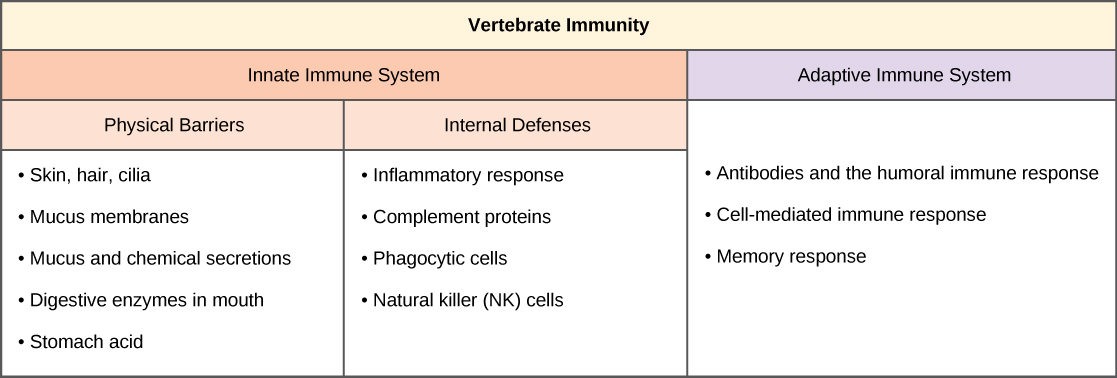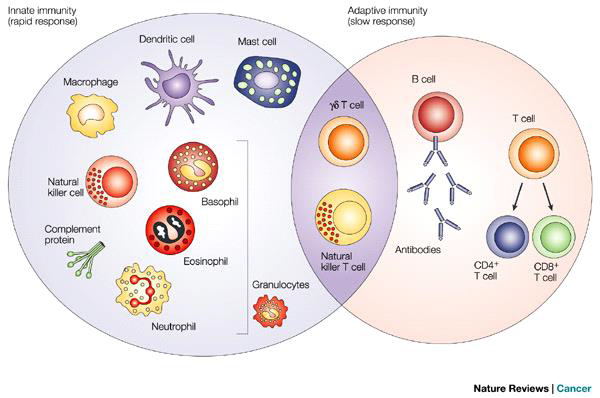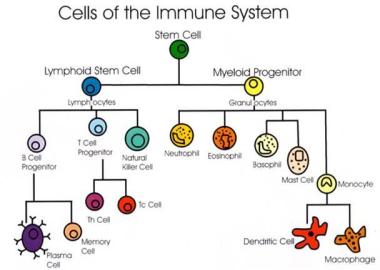Immune system
- Components of the immune system: Layered defense
| Innate immune system | Adaptive immune system |
|---|---|
| Response is non-specific | Pathogen and antigen specific response |
| Exposure leads to immediate maximal response | Lag time between exposure and maximal response |
| Cell-mediated and humoral components | Cell-mediated and humoral components |
| No immunological memory | Exposure leads to immunological memory |
| Found in nearly all forms of life | Found only in jawed vertebrates |



Layered defense
The immune system protects organisms from infection with layered defenses of increasing specificity.
- physical barriers
- prevent pathogens such as bacteria and viruses from entering the organism.
Innate immune system
- all plants and animals
- If a pathogen breaches these barriers
- the innate immune system provides an immediate, but non-specific response.
Adaptive immune system
- vertebrates only, second layer of protection
- If pathogens successfully evade the innate response
- activated by the innate response
- the immune system adapts its response during an infection to improve its recognition of the pathogen.
- This improved response is then retained after the pathogen has been eliminated, in the form of an immunological memory
- allows the adaptive immune system to mount faster and stronger attacks each time this pathogen is encountered.
- physical barriers